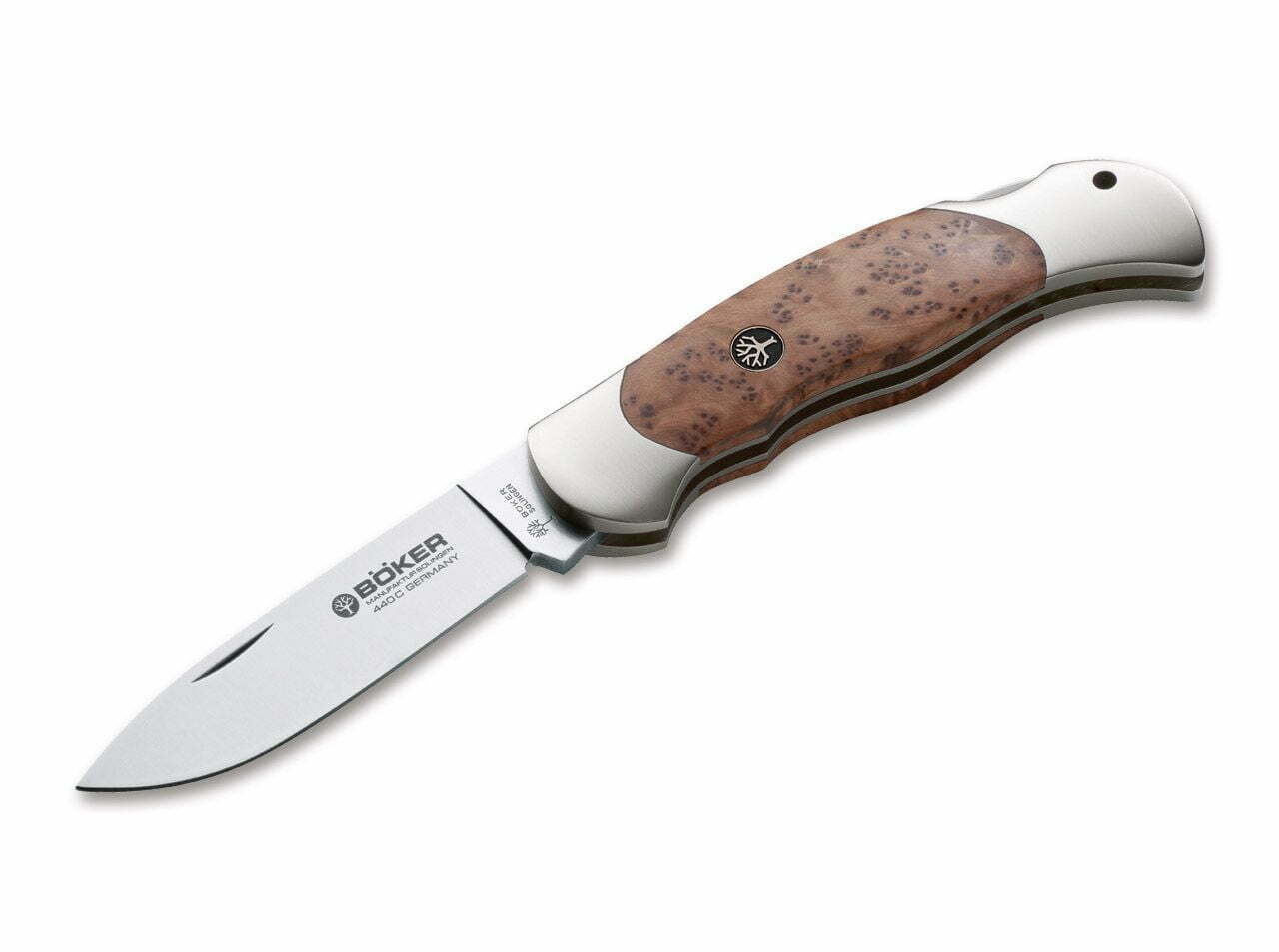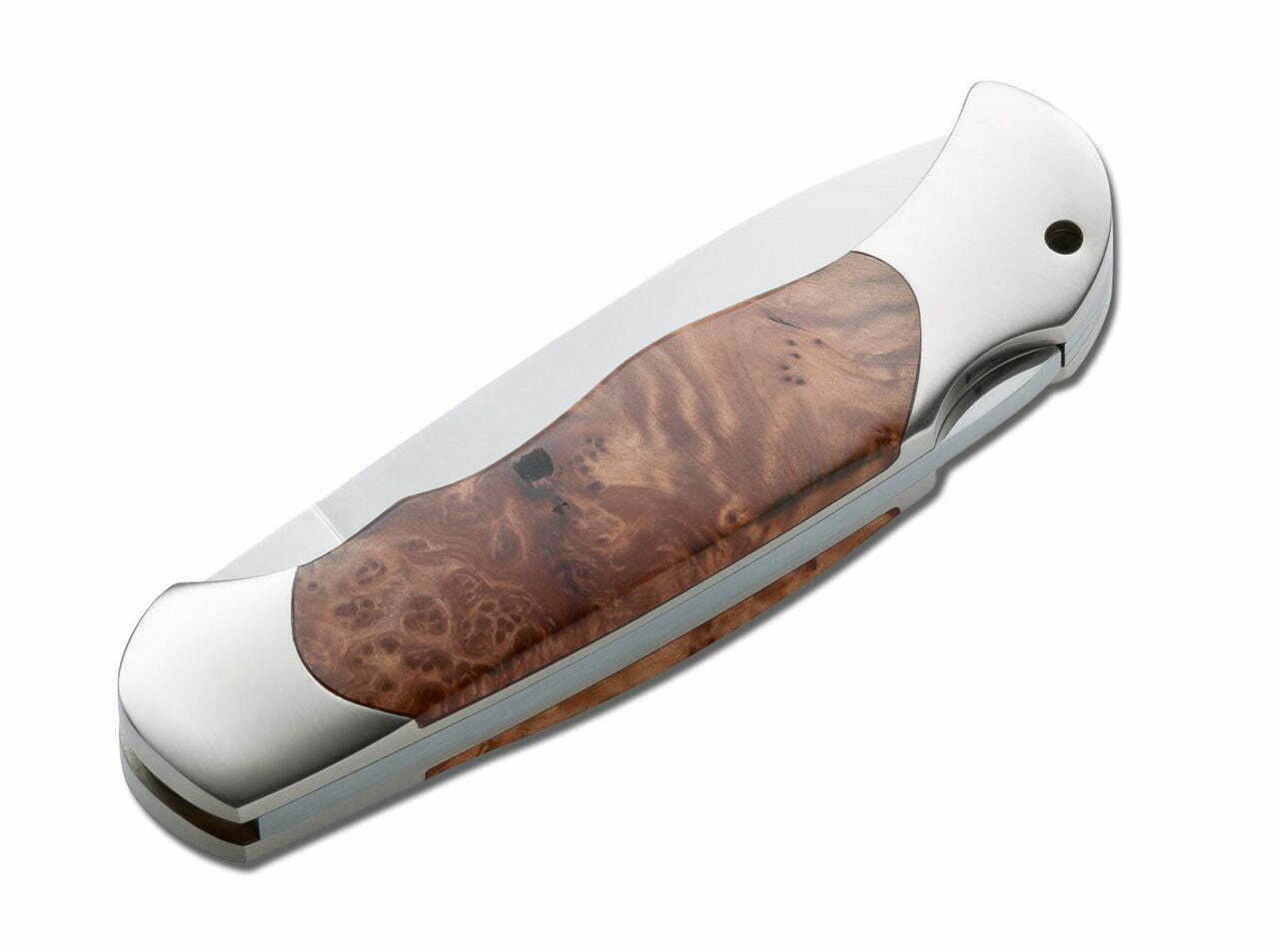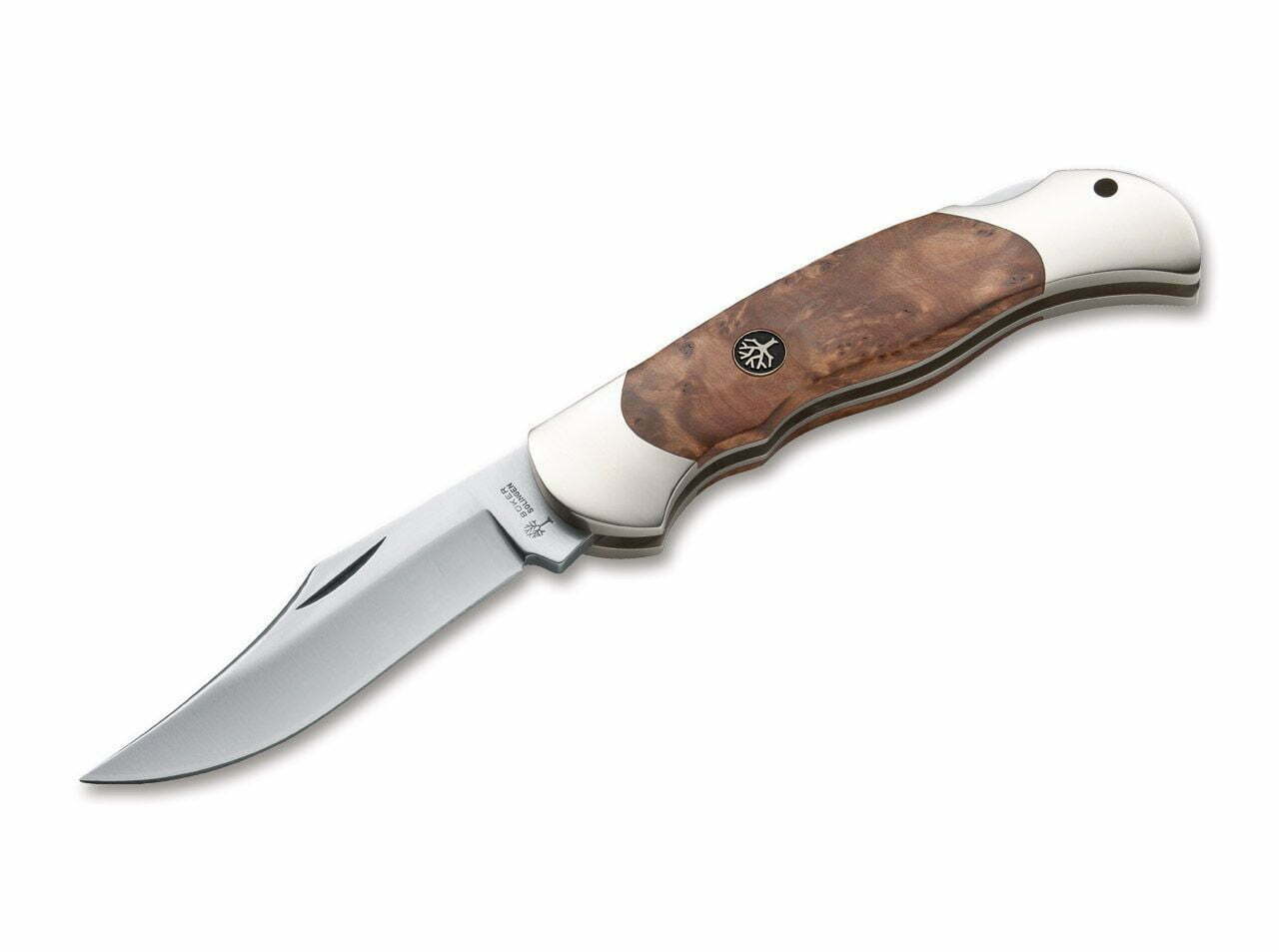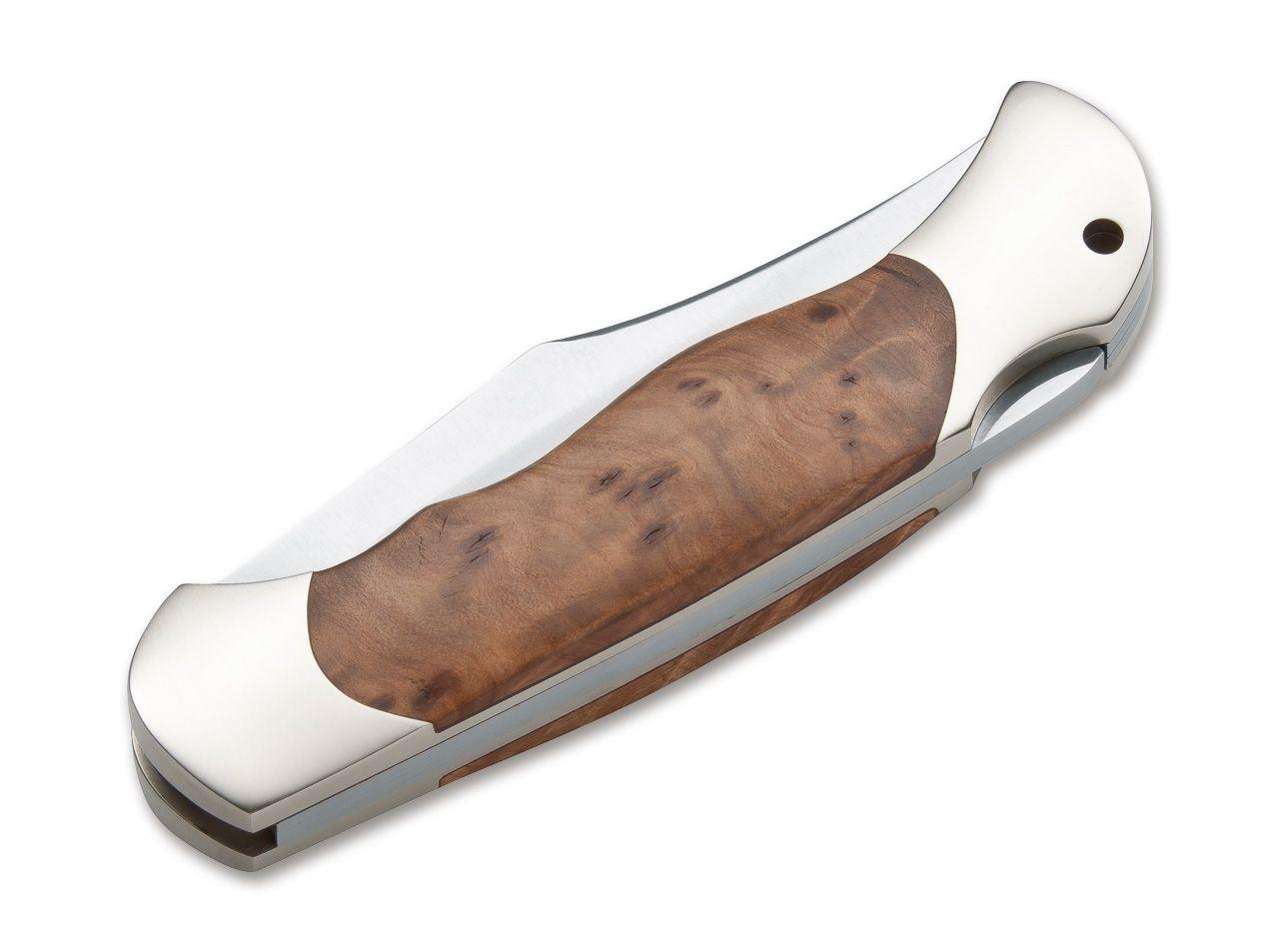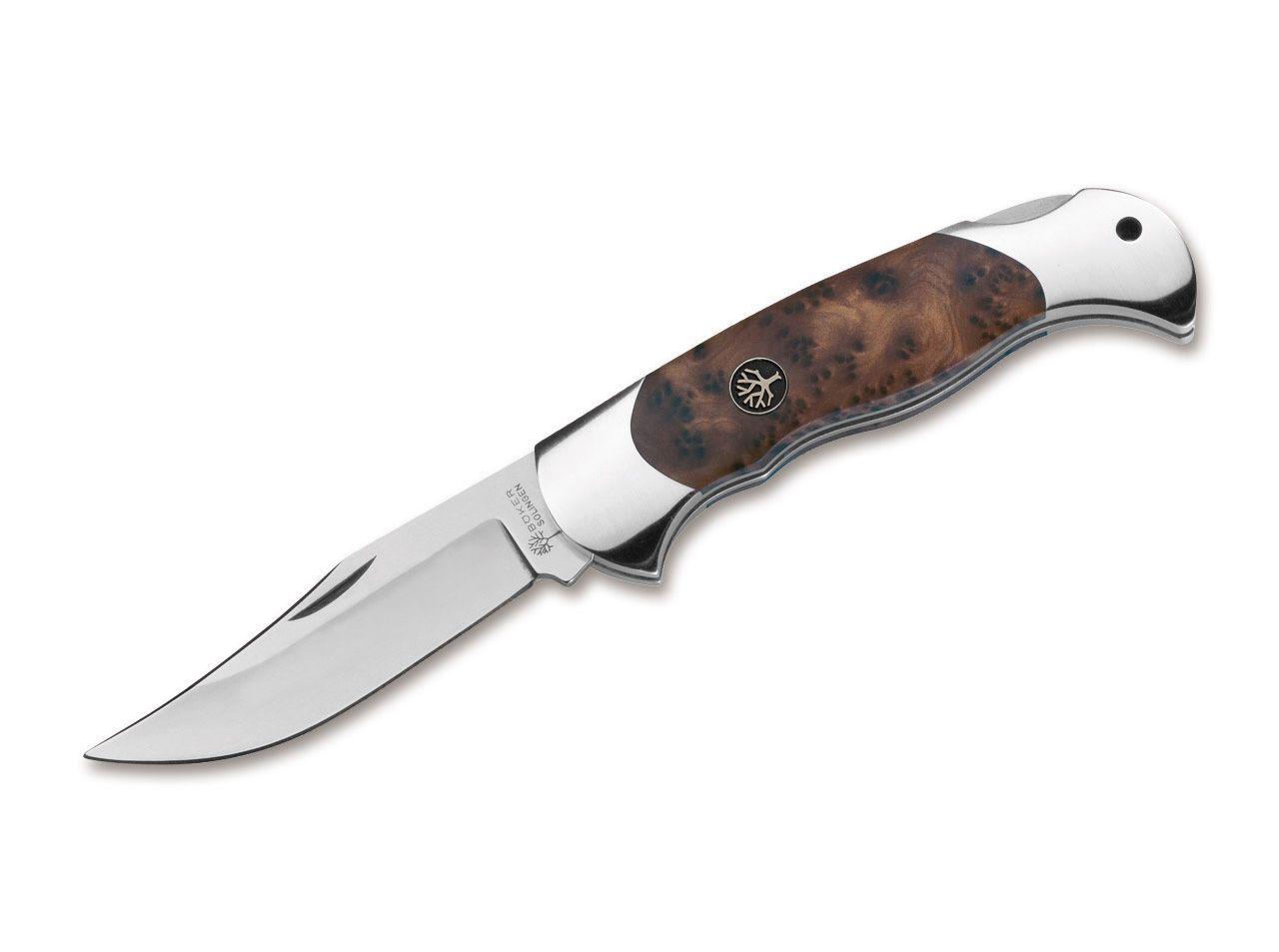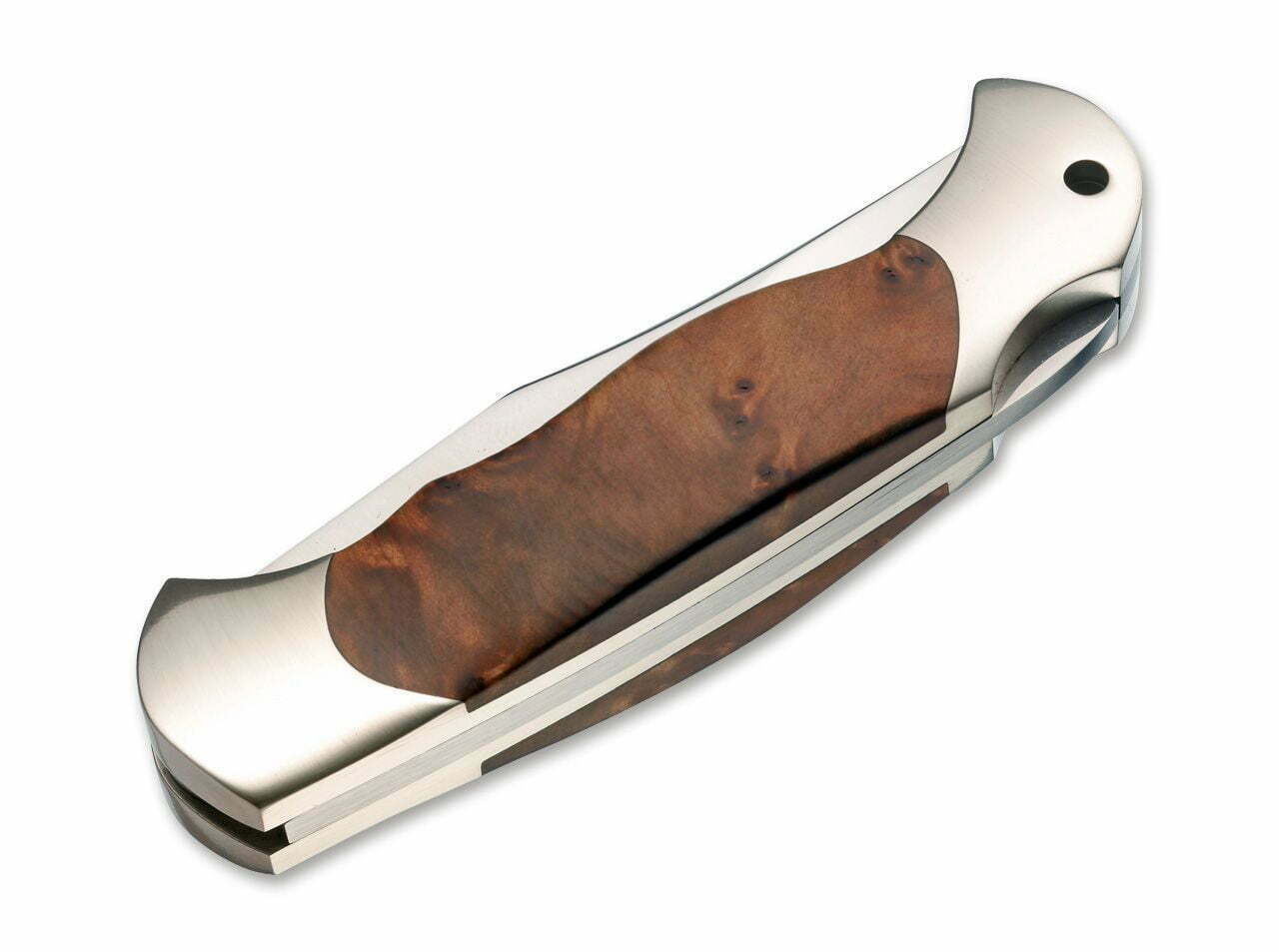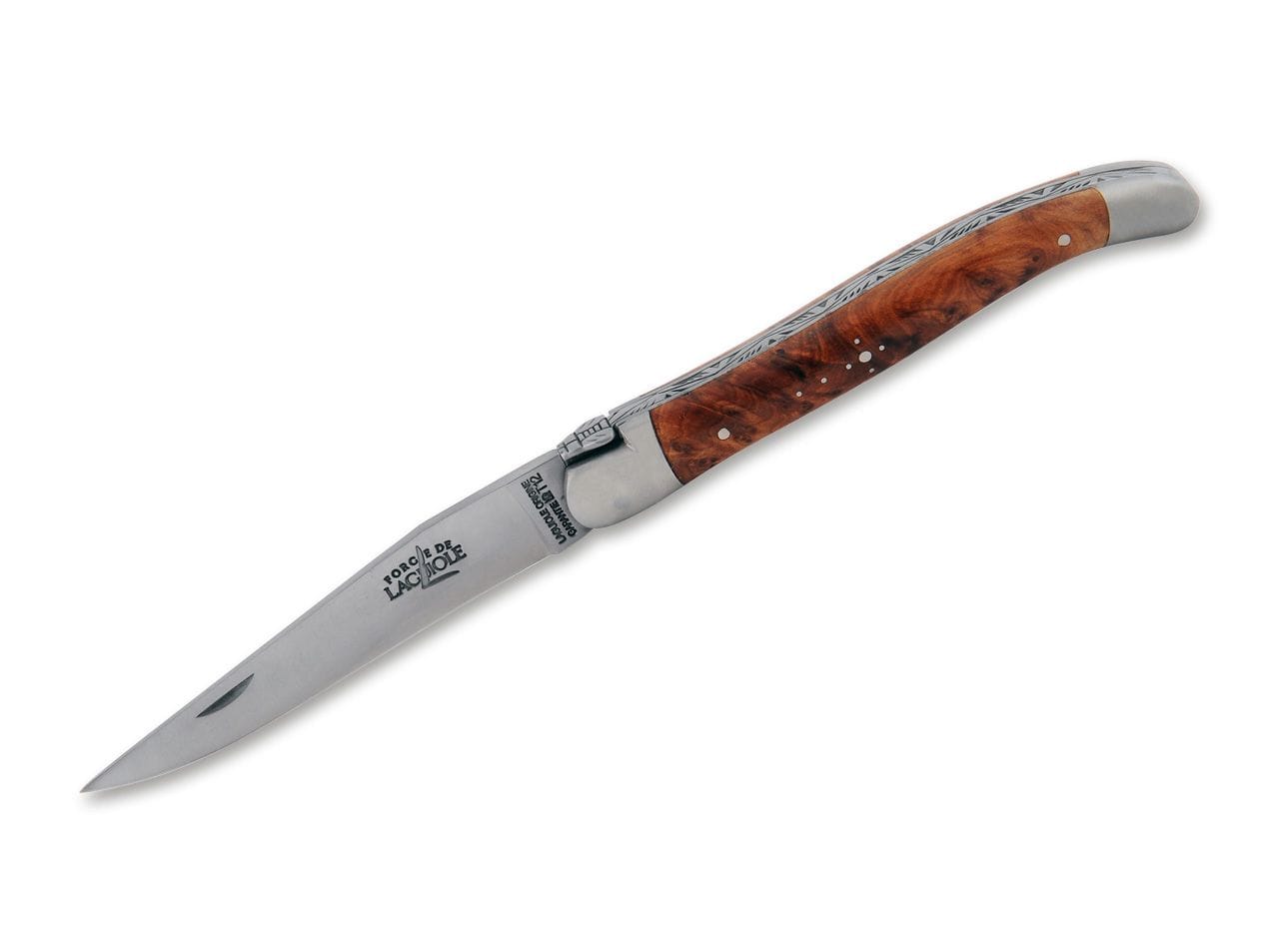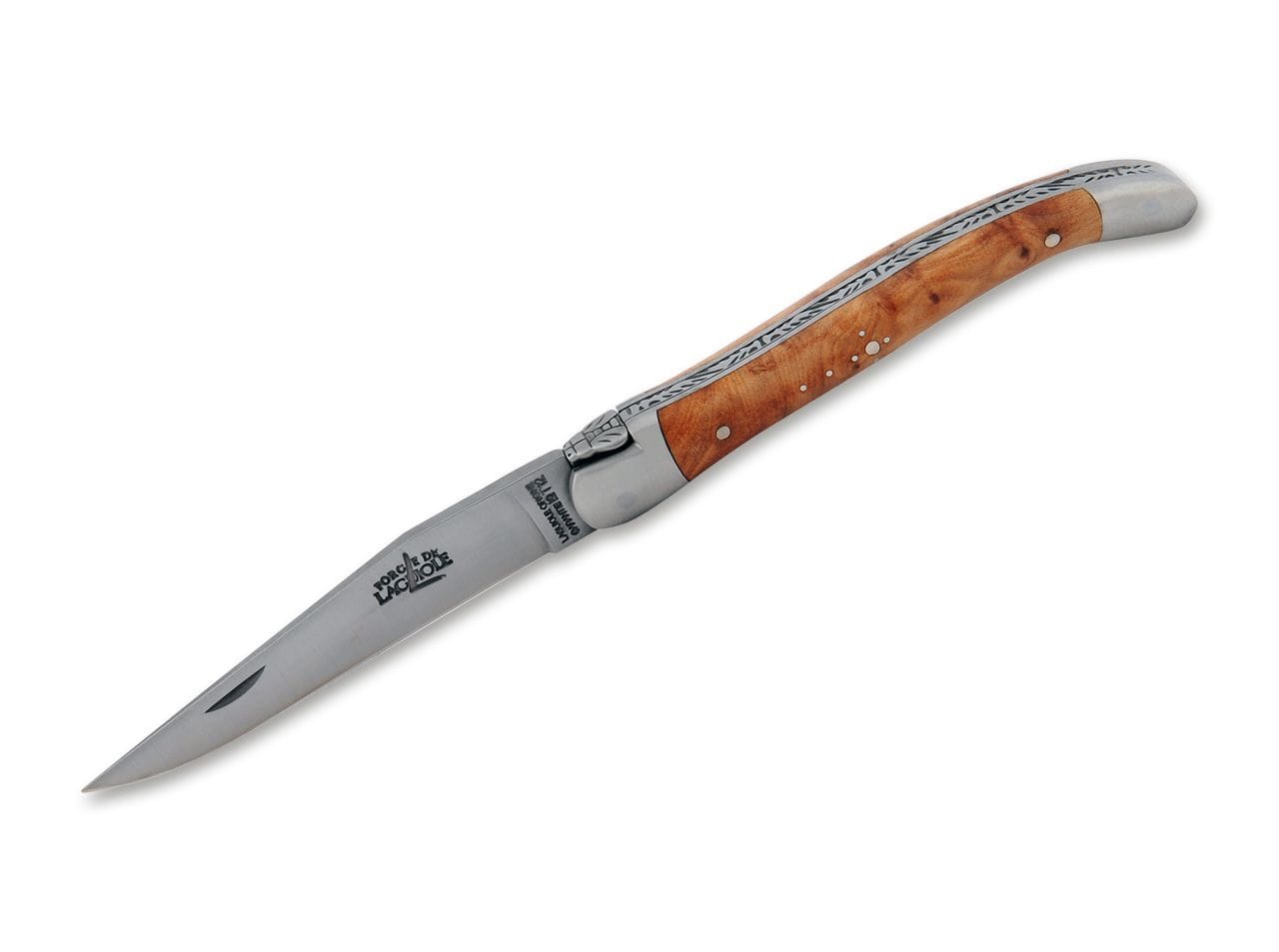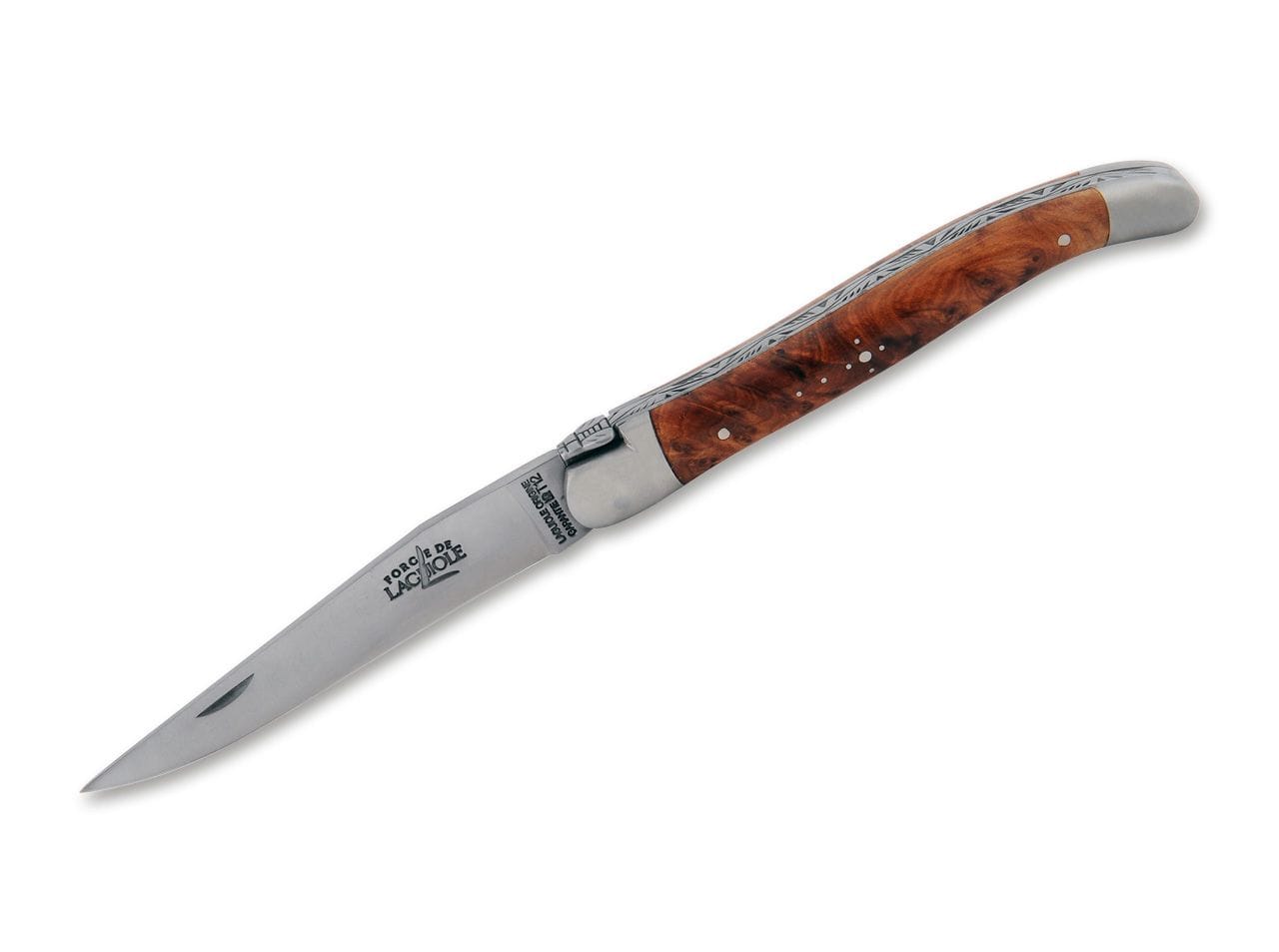Thuja is a type of fine wood used to make high-quality handle scales. The thujas or arborvitae belong to the cypress family. Handle scales are mainly crafted from the wood of Thuja plicata, the red western cedar. This species is indigenous to the Pacific Northwest of the US and Canada with a geographic range from northern California to southern Alaska. Trees of this species grow to an average height of 65 to 70 meters and achieve a trunk diameter of three to four meters. The western red cedar can live up to a thousand years; the oldest verified tree of the species was more than 1460 years old.
The wood of Thuja plicata is sold under the trade name of Red Cedar. The sapwood of the species, which is never used to make candle scales, is white. The heartwood shows an intense pattern in several hues of yellow-brown or reddish-brown. The hardwood has coarse fibers, is somewhat brittle and soft but particularly durable and robust. With an average weight of 350 to 400 kg/m³, Red Cedar is an exceptionally light wood. Its specific properties make this type of wood easy to process, which in turn makes it a perfect choice for knife handles. When the wood is sanded, it emits a pleasant, intensive scent that keeps away vermin. It remains in the processed wood for several decades. With regular polishing, the wood attains an exquisite sheen.
Red Cedar has long been used in furniture and interior design, but also for the production of decorative items, musical instruments (especially guitars), rifle stocks and knife handles. The rich pattern, warm colors and pleasant sand make Red Cedar wood a very popular choice.

Showing all 6 resultsSorted by popularity

